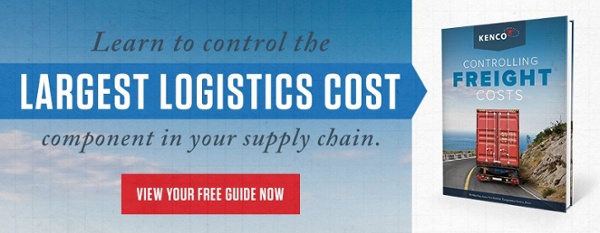
Some expenses can be extensively planned for––they're made to be debated and compared, even negotiated, as a normal course of business. Others are more intrinsic, and tend to be accepted as part of the overall cost of operation: fuel costs, for example.
Transportation falls into the latter category, and tends to be neglected in terms of assessment unless costs have suddenly gone well outside of the norm; even then, it's often more about addressing that particular issue, rather than a holistic audit.
The current market conditions are tightening, allowing carriers to raise their rates––and if you aren't currently scheduling time for regular assessments, your budget could be a tire with a slow leak. Don't let yourself end up stranded with a proverbial flat tire.
Make sure you aren't making these 5 transportation expense mistakes in your business:
1. You don't have any automation in your transportation approach.
Third-party TMS technology for transportation management isn't so much an option as a necessity these days. If you're stuck in a manual or Excel sheet order-to-cash process, you're artificially limiting your capabilities and inviting in potential issues. Even if you think you're "handling it" with your current process, consider questions like these:
- When you receive an order, how do you process it?
- How do you ensure on-time arrival?
- How do you audit your freight bills?
- How do you plan for continuous improvement?
- How will you thrill your customer to ensure their business with you?
A piecemeal solution of emails, calls, and Excel sheets aren't going to scale accurately (or at all, if they're holding your business back). It's more work to manage your transportation "manually," which means it not only costs you more in the long run, it impairs your ability to scale up or improve through examination and experimentation. Determining metrics by hand, consistently and accurately, is nearly impossible given the volume and speed of most transportation-equipped modern companies.
2. You don’t have a capacity plan.
Speaking of scaling, if you can't keep up with the demands of the market, you can rest assured that a competitor will be happy to take that business off of your hands.
Going low-bid on an RFP may seem like a smart short-term solution, but the problems it delivers become immediately apparent in a demand crunch.
If you find your usual transportation provider can't handle an influx of orders, you'll need to scramble for a last-minute solution––complete with a last-minute price tag––to fill the gap.
Leaning on short-notice "option B" providers will drive up your per-shipment cost, and will also likely eliminate any financial gains from that once-attractive low bid.
3. You're prioritizing cost over relationships.
While your relationship with your transportation provider can't stand as the sole selection criteria, cost shouldn't be used in that capacity either.
With a perfect storm brewing (figurative in the case of ELDs and driver shortages and literal in the face of 2017's hurricane season), having a provider that understands your needs, frequency, and capacity requirements is crucial.
A transportation provider that understands these points will be more likely to spot and suggest potential solutions, and will also know how to put in a transportation-related fix if something goes awry in your normal operational flow.

4. You're ignoring risk mitigation.
Thinking about the worst case scenario seldom feels productive, but planning for them with your 3PL is an important part of a proactive transportation approach. This conversation might be as simple as asking for solutions if your demand suddenly spikes, or as complex as asking for alternate transportation solutions if your companies are faced with natural disasters or port closures that disrupt your normal routes.
If you aren't sure where to start the conversation, look for a 3PL provider that offers to take the lead: that's a signal they not only understand the importance of risk mitigation, but they've also had in-the-field practice with scenario planning.
5. You're guilty of ship date misalignment.
Much like the cost of those stop-gap transportation providers, shipping LTL might appear to be cheaper, but this is not always the case. If you sent 10 shipments in a week, that were each $1,000––could you have shipped just twice and paid only $2,500?
You might not feel the pinch shipment to shipment, but as they pile up, your costs will skyrocket and start chipping away at your profit.
A 3PL with engineered alignment ship dates will help control this cost and keep you from needlessly overpaying, and net you better full-truckload services. Much like taking a slightly more expensive direct flight, you will save “stopover” time and possible delays, there will be less touch, less damage, less variables, and it will get there faster. It may take a little more work and planning back at HQ, but ultimately it's profit that can translate to paying for future FTL shipments––and isn't this the goal for any successful business?
To Sum It All Up:
Even if you recognize a few of these missteps, it's never too late to correct them and strengthen your transportation management. Aligning your business with strategic 3PL providers will eliminate a lot of these all-too-common headaches, and shifting your focus beyond cost alone will keep you both agile and lean.
Keep scaling, automation, and holistic analysis in mind and read up on your options with our Freight Costs eBook, full of innovative solutions to keep your operations moving forward, no matter what the market has in store.



